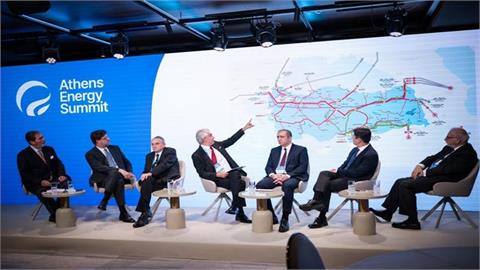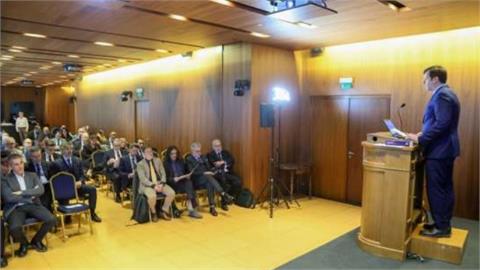On June 1, the Institute of Energy for SE Europe (IENE) sent to its members its latest newsletter “Monthly Analysis” (Issue No. 310). The analysis focused on the coronavirus pandemic (COVID-19) and how it affects the energy sector in SE Europe, in terms of investments and potential impediments in the decarbonization process. The plunge in carbon prices, as a result of lower energy demand, indicates the obstacles that were caused by the coronavirus spread and may affect the recently launched European Green Deal.
On June 1, the Institute of Energy for SE Europe (IENE) sent to its members its latest newsletter "Monthly Analysis” (Issue No. 310). The analysis focused on the coronavirus pandemic (COVID-19) and how it affects the energy sector in SE Europe, in terms of investments and potential impediments in the decarbonization process. The plunge in carbon prices, as a result of lower energy demand, indicates the obstacles that were caused by the coronavirus spread and may affect the recently launched European Green Deal.
Efforts are now being made to ensure that the economic recovery measures adopted by the EU and at national level are in line with the long-term energy and climate targets. In this context, SE Europe, which is more vulnerable to such economic shocks and is already facing great challenges in the energy transition, will need to redefine its decarbonization policies.
In order to address this multifaceted crisis, IENE’s Monthly Analysis points out that an economic recovery plan should be designed to take into account both the limited resources for the countries in SE Europe and the need to safeguard the long-term decarbonization objectives. Any short-sighted measures lacking transparency create the risk of distorting markets and, crucially, deferring low-carbon investments and so potentially establishing an irrecuperable handicap in meeting the long-term decarbonization objectives. Therefore, officials from Brussels argue that the stimulus packages should be aligned with the principles of the European Green Deal.
The Western Balkan countries, together with the EU, now have the opportunity to make a bold decision about moving forward alongside the block towards a sustainable decarbonised future and reap the region’s potential for a healthier environment. The Green Agenda for the Western Balkans, with its main goal to unlock the region’s huge renewable energy potential, strengthen regional cooperation, enhance citizens’ health and support the circular economy in the countries through support for their own National Energy and Climate Plans (NECPs), must be based on sustainable decarbonisation of the regional economies by 2050, in line with the Paris Climate Agreement and EU climate and energy policies. All countries need to commit to climate and energy targets by 2030, in line with the EU’s ambition. These must be complemented by concrete implementation measures, support and financing and reflected in NECPs, concludes IENE’s lengthy and well-referenced analysis.




